Thinking How to get your kid to listen without yelling? We have got you covered!
Well, your day has barely started and you started to lose your cool. Is it?
As a big believer in positive living, I believe in positive parenting as well. However no matter how hard we try, even with our best of intentions, sometimes we just loose it!
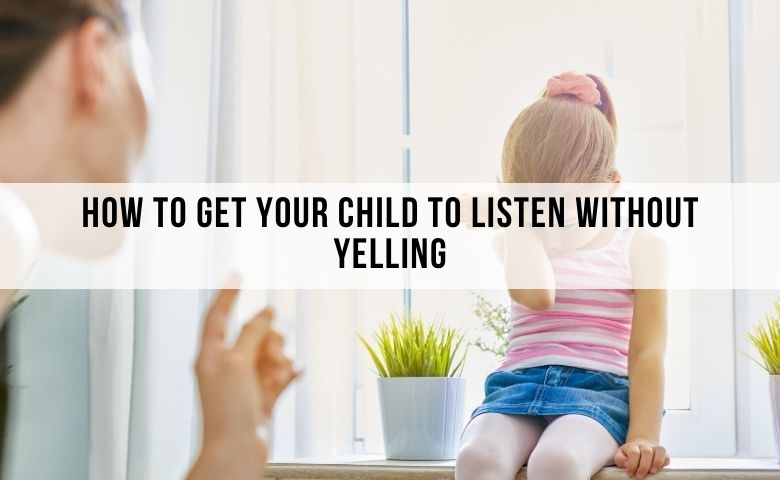
First, let me assure you that if you struggle with getting your children to listen the first time without yelling, you are not a failure as a mom, and you are definitely not alone!
There are so many parents who I meet and they just ask one question, “How can I get my child to listen to me without yelling?”
Kids just don’t listen. Parenting keeps repeating themselves again and again but it’s of no use. Finally, they start to yell because they are beyond frustrated and been pushed to their limits.
There are so many times we just lose our cool.
Times when you try to get your child three or four times, but every time you go in, he/she ignores you and rolls over.
Or maybe you try hard to put your child to bed but each time you go in you find him playing with his legos instead of doing what he was supposed to do.
Maybe you’re in the kitchen or having your own food, and your kids start playing with their food making a huge mess that’s waiting for you to clean it up. Eventough you told them to stop and they are old enough to listen to you.
But, they just don’t!
And you’ve taken a deeeep breath! You pretty much did everything possible to handle your anger towards your child, yet it just isnt working.
Are you one of those? If you’re, this article will give your effective strategies on how to become a calmer mom and get your kids to listen to you.
Thankfully, there are ways with which they will just listen. I promise!
I have been there myself and I know we can make a change! There is a better way to just make your kids to listen the first time.
Let me give you my own personal experience of when I yelled at my kids
A year before when my daughter was just five-year-old and my younger son have been sick. It was obvious most of my time was spent with the son because of the viral infection he had.
With all the chores around the house and only one person managing the entire household, I had no time for my daughter.
Most of the time she was busy studying and other times she started throwing stuff around the house.
With a lack of attention, she started to get agitated. I obviously would lay down with her at night, hug and kiss her to sleep but this wasn’t just enough.
It was as though she had been ignored completely which is a solid reason for kids to behave like that.
So, what she started doing was throwing toys, jumping on furniture, and screaming to a point where I would smash my ears. I tried to calm her down but unfortunately with all that was going on I lost my calm and resorted to my old ways.
“Stop screaming!”
“Stop yelling!”
“You are driving me crazy!” was all I could say.
Sometimes you understand what is the best course of action when dealing with your child, still, you fail.
I failed!
This was the moment I realized how off the rail my parenting is going. I really needed to get back and start proactive and positive parenting.
What I noticed was that we started to yell most of the time because my child just wouldn’t listen. We even started bribing like “if you get dressed properly, you’re going get a candy” and threatening like, “if you didn’t listen, you’re going go into time out“.
These tactics worked for the moment but her behavior never improved. Each time these offers or threats weren’t made, the behavior cycle continued. If bribes were not given, the behavior got worse and our child became defiant.
Turned out, bribing, threatening doesn’t work rather they make things worse and have negative effects on a child’s behavior. I started researching for better ways, which there are and finally found yelling simply just doesn’t work!
I realized that I really needed to stop yelling at my kids and also needed them to listen instead of just being scared of my dreading voice and do what I ask them to do.
Why Yelling Doesn’t Get Your Child To Listen To You
The ultimate goal of every parent is to get their child to listen. And for this, you just have to learn not to yell! Feels impossible, right?
The problem is, yelling never feels good absolutely, for anyone. Try to remember when was the last time someone yelled at you or you yelled at someone?
The new research supports that yelling at kids can have harmful mental effects on them. Yelling can be just harmful as hitting them and according to the study after two years, effects from harsh physical and verbal discipline were found to be similar.

A child who is yelled at is more likely to listen less and exhibit problem behavior, thereby leads to more yelling which is a repetitive sad cycle.
Now, I have seen many people telling me, “When I yell at least they listen and obey“. I’m sorry that I have to be a bearer of the bad news here, but kids just “hear” when you yell at them.
You might think it is working because when you talk normally no one moves, but as you break out a yell, there is an immediate response.
It’s a kind of fight or flight response they give in return to the yelling.
What our main goal as a parent is to get our kids to “listen”. Hearing and listening aren’t the same things here.
What I’ve learned through experinece is that yelling really never works and ultimately kids lose respect for parents who constantly yell at them.
Negative Effects of Yelling, Bribing Or Threatening to get your child to listen
Yelling, bribes, and threats may be the easy choice to get your child to listen, but this can have some negative effects as well. One of the main side effect is that they listen from fear instead of learning to obey and respect you as a parent which is bad.
Pam Leo, the author of Connection Parenting, explains “threats create disconnection and undermine the parent-child bond.”
On the other hand, trying to get your kid to listen to you by offering a reward is not a bad thing, but it is important when you offer it.
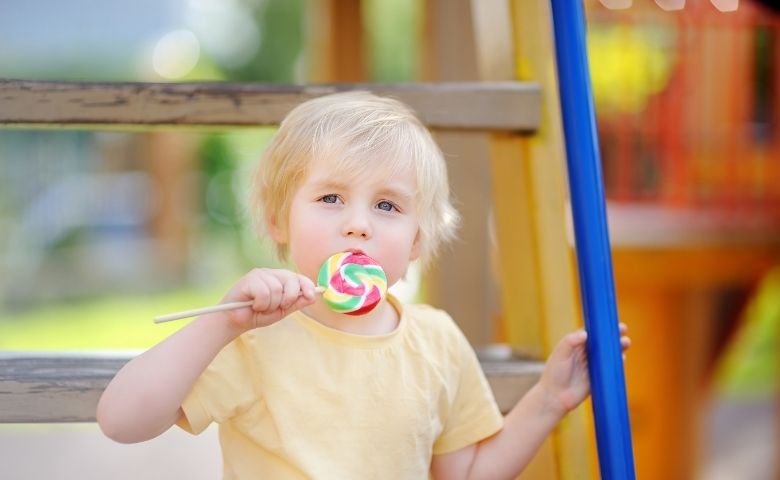
Psychology Today explains a great point about when we need to offer a reward. Instead of offering rewards in the middle of hot agreement when your child is misbehaving,, try to offer them before the behavior begins.
A perfect example can be, “Let’s have some ice cream if we all behave well at the dinner.” It is also OK to offer them a reward, even if they can’t follow rules. This makes them trust you and what you say, which is also a building block of having a parent-child bond.
If you are constantly using threats and bribes and this your only parenting strategy then in a long run, your kid’s compliance will chip away and this can lead defiance in children.
This is going to affect your child’s self-esteem and creates a negative relationship between child and parent which can cause more ongoing arguments and disagreements.
So, instead of talking at your kids, talk with them and teach them to respect parents even when you have nothing to offer them. Your respect as a parent shouldn’t be earned only by offering something in return.
Here is a FREE Toddler Parenting Tips Presentation about Unusual Tips to Effective Parenting
How to get your kids to listen without yelling (my 9 steps)
These are a few steps, I have taken personally to stop yelling at my kids and finally getting my kids to listen to me. These have worked for me and I believe once you try them they will work for you too.
The ultimate goal of this post and all the steps mentioned here leads to our final goal to stop yelling!
It’s best to break down how to get your child to listen to you without yelling.
Start with Self care
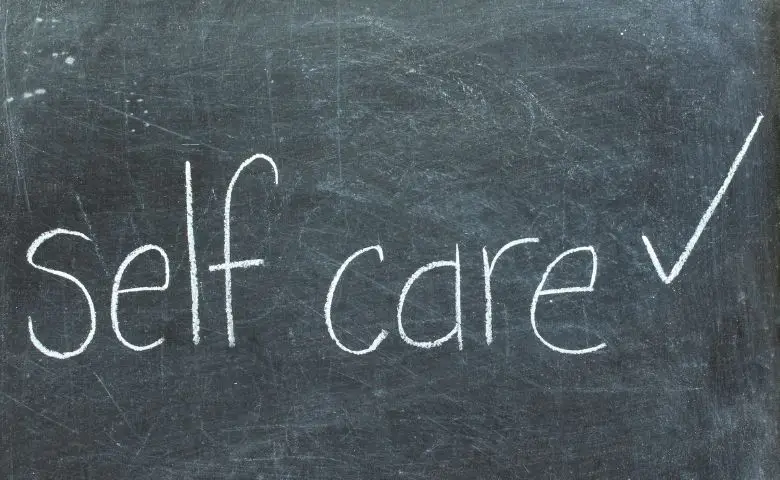
I know this might sound very futile and as you get into the trenches of parenting, self-care does get futile. Many mothers say, “I don’t have money to spend in spas rather than getting important stuff for my kids.”
I was in the same boat.
Buit the truth is, you simply cannot pour from an empty cup. Being a calm parent starts with spending some time alone or having a me time where there are no constant touches, or being asked for every single thing after every five or six minutes.
This me time is important because this gives you peace of mind, and when your mind is at peace, you are at peace. So, start some simple self-care routine that doesn’t need to be expensive, but effective and regular.
There are many ways to incorporate a self-care routine in a mom’s life. This can be going for a walk with a friend, reading a book or having some meditation.
Try to ask for your parents or friend’s help in taking care of your kids or house. Invest this time in yourself and try to do things you love.
Deal With Your Personal Frustration First

As I have mentioned previously that yelling doesn’t no good to you or your child so you need to learn to keep your calm and stop being angry.
Ylling like lunatic and saying hurtful things to your kids will have lasting consequences and whether they tell you or not, those words will run deep.
One thing that we must remember is Our yelling is more about us than it’s about them. When we get overwhelmed and let out a yelling fit, it is no different that a toddler who drops on the floor in a temper tantrum.
So, when we have a parent tantrum, we need to give ourselves parent timeout. It is also important when you step away, to release your personal frustration before diving in. that’s because when you discipline when you are angry, that shows your authority.
Not only does this show how much authority you have, but it also teahes them to have a loose untamed emotions just by watching you.
Children tend to follow what they see more than what they are told to do. If you cant control your emotions and frustrations, they will learn to do the same. So it is essential to tame your stress and frustration first.
Yelling like lunatic and saying hurtful things to your children can have lasting consequences. And whether they tell you or not… those words run deep.
Our yelling is really more about us than it is about them.
This is so important for us as parents to let this sink in. When we get overwhelmed at the situation and break out into a yelling fit we are acting no different than our toddler who drops to the floor in a temper tantrum.
And when we feel tempted to have a mommy tantrum… we need to give ourselves a mommy timeout. This is really important to allow us to cool down so that we don’t let the emotions take control over us.
So you need to give yourself a self care routine and also release your tension. When you do this, this unproductive cycle can be broken and you are the one to break it!
When this happens, parents get more frustrated. Again, it’s that vicious, unproductive cycle that must be broken.
Stop using labels for them

It’s important for parent to stop labeling your kids by saying “bad boy” or “bad girl” with remarkable ease.
Are you sure your child is a “bad boy” or a “bad girl”? If not then should you really label them?
We don’t think twice before labeling our kids with these terms casually. But we must remember how the labelled child may feel about the label given to him with ease.
We must put ourselves in their shoes and imagine how we would feel if we were given labels and judged by them.
I learned this from my son’s school teacher. Instead of labeling my son a “bad boy” when he wasn’t paying attention to her. She said, “You are good and amazing. But your behavior today was not so good. This is what you can do so that it would be nice next time.”
Instead of giving him names, she appreciated his good manners and asked him to do more of them. Each time when he was reminded of his good manners, he started doing more of them in school.
This is what we started doing in the house as well and we have seen huge improvement. So the thing is when your child does something that you don’t like – does it make him bad?
The answer is no. then it is totally unacceptable to call your child a bad boy or a bad girl.
When we discipline our children we must remember that children are always good. It is just their behavior that is sometimes bad.
The entire purpose of discipline is to point out what your child is doing wrong and correct it. Do not attach a label that makes him think of himself as a bad person.
Calling kids “bad” hurts their self-esteem. When children are young, they learn almost everything from their parents including their identity. It’s important for us to be the first to tell them how good they are or this bad image will stick with them throughout their lives.
Stop saying “Don’t” and “No”
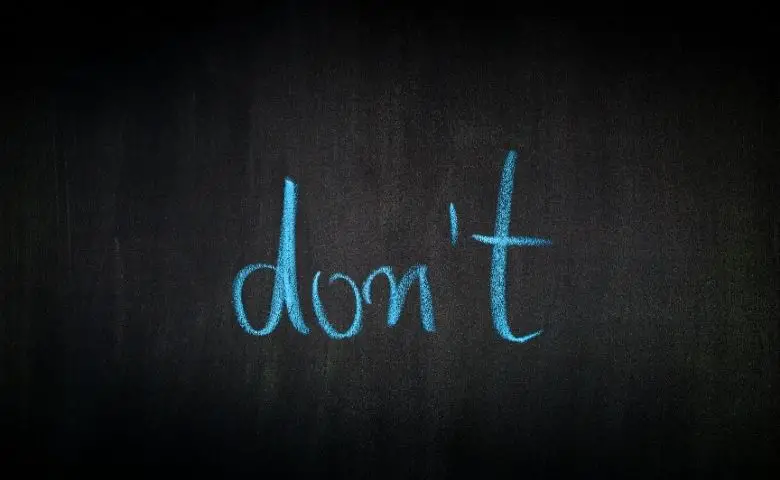
Don’t run in the house. Don’t play with your food. Don’t touch your baby brother.
Do you see what’s wrong?
That’s the word “don’t”!
Negative commands such as “don’t” and “no” can give kids a two-fold command.
Kids might think two types of questions:
- What do you NOT want me to do?
- What do you want me to do instead?
That can be confusing for your kids and contradictory as well. For example, if you say, “don’t run in the house”, a child thinks to stop a current behavior and determine an appropriate behavior alternate to the previous one. Like – if I can’t run in the house, does that mean I can’t play around? Can I jump instead? Or can I play around with my toys on floor?
Instead tell your child what he has to do!
Instead of saying, “Don’t run around the house,” try “Please can you walk when you are in the house.”
Instead of saying, “Don’t leave your toys all on the floor,” say “Please put your toys in the bin.”
Instead of saying: “No shouting,” say “Talk softly please,”
Instead of commanding, “Don’t touch your baby brother,” ask gently to “Please use soft touches when you touch your baby brother or your baby brother doesn’t want to be touched at the moment, please you can keep your hands folded and just try to watch him.”
These changes will definitely work because when you command you show how authoritative you’re, but as you please you show respect and kindness which works wonderfully because you are keeping your tone low and talking to them as if they’re grownups and responsible.
This brings out a sense of being grownups and responsibility in them, from the beginning.
Get on their level and use eye contact

When you need your child’s attention, make sure you get your child’s attentions – that means having a clear eye contact.
These two actions have saved my sanity and help stop bad behavior. It works like magic. Parents and kids can work and relate better when they have a same eye level.
When you lower yourself down and look in your child’s eye, you not only verify that he/she hears you but you also strengthen communication as well.
For me, whenever I want to have such conversation I never yell from the other room or look down at my kids. Rather I get down on their level, say their name, have an eye contact and speak to them.
For this you have to step away from whatever work you are doing and go to their room, instead of barking orders from the other room, you actually speak to them
This step has been a crucial one for us and this can help you get your child listen to you for the first time. If you ever feel this talking is not working (which usually does) you can try a whisper technique, where you talk to your child in a whisper and he thinks of it as a secret and listen attentively.
Say Thank You (In Advance Actually)

Normally “thank you” is something we parents say after our kids have performed something good or have obeyed us.
How about you start saying “thank you in advance”. Trust me this works!
This is a simple trick to help your kids make better and appropriate choices.
For instance, commanding your kids saying, “I better not see the toys on the floor again,” instead say, “Thank you for keeping your toys back in the toy bin”.
All the people and especially kids, will live up to our expectations only when we know how to manage them in a positive way.
Letting them know in advance that you trust them, to do the right thing, will cultivate open communication lines and increases the likelihood of that task being completed.
Give one instruction at a time
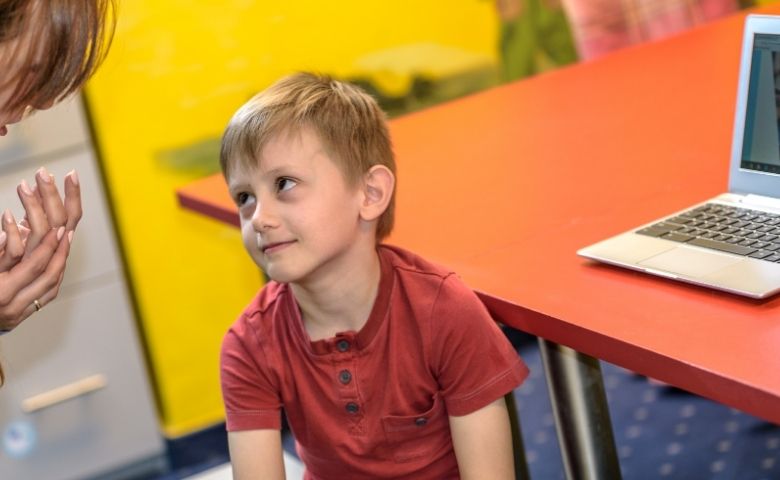
Give one instruction at a time and be willing to repeat it if necessary. This will allow your child the opportunity to process what is being asked of them before giving a response.
If they do not follow through, don’t get frustrated or raise your voice – just calmly state their name and then repeat the same instructions again without repeating any words that aren’t needed for independent understanding.
For example: “Taylor, please pick up all of your toys.”
“I want you to help me clean this mess up. Please Taylor put away all of those blocks so we can begin our next project.“
It’s important when providing verbal directions to use positive language instead of negative commands that are less likely to be misconstrued.
For example: “Please put those blocks away so we can start the next project” vs. “Don’t you dare leave those toys out!“
If your child isn’t responding, take a break and then try again later when they might have more patience or better understand what is being asked of them instead of feeling threatened.
The most important thing is not yelling at kids for not listening, but addressing their needs in order to get them on board with following through with requests made by adults!
Reinforce Positive Behavior
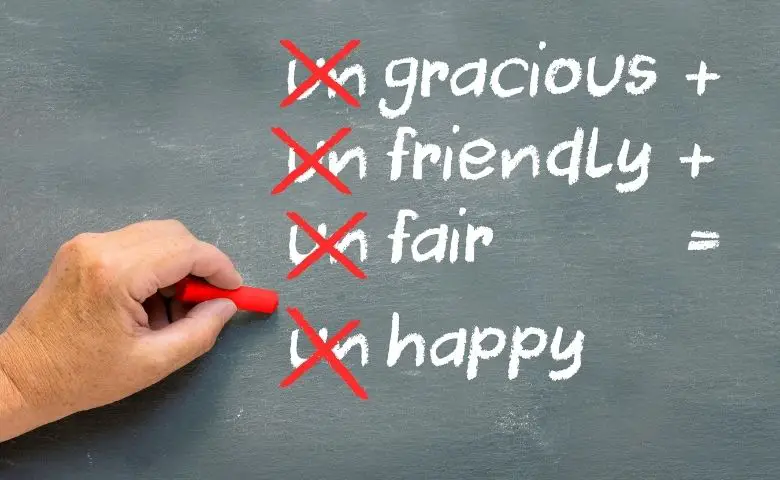
It’s also important to reinforce the behavior, so if your child is doing something good or listening, let him know how much you appreciate that and tell them what they are doing right!
If your child stops running around the house and starts to listen to you appreciate them and tell them how much you love that they listened.
If your child has done a great job listening, give him a reward for his efforts.
A reward system that offers them some sort of benefit from complying, such as getting extra screen time for chores done without being asked.
Kids need a lot of encouragement and feedback every step of the way because sometimes we don’t even realize when our child has done well. It can be difficult sometimes as parents especially nowadays with busy schedules but it’s worth all the effort put into reinforcing positive behaviors for children who make an effort.
provide a negative consequence for non-compliance
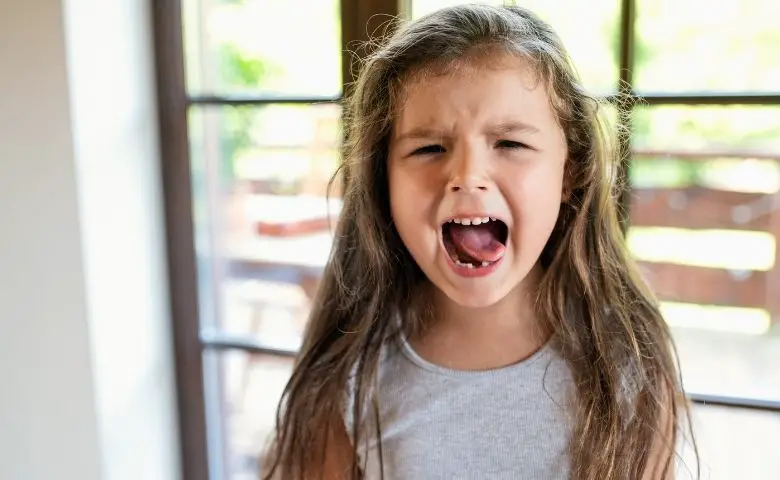
If the conversation continues without compliance from the child, ultimatums should only be used as last resort measures because they will do nothing about building rapport between parent and child.
Things can get out of hand when you don’t have control or trust in the adult-child relationship which is why it’s important to use positive reinforcement most of the time.
When children are not given something in return, children are less likely to adhere to parental wishes because there isn’t an incentive.
That doesn’t mean threatening but instead providing a negative consequence for non-compliance like – taking away their favorite toy or TV show until they agree to do what the parent has asked.
However, these consequences need to be agreed upon beforehand and also meted out immediately when non-compliance is observed so that it’s clear there are repercussions for not following through.
If you’re consistent with this approach, children will get used to doing things because they know their behavior comes at a cost which starts them on the path of being compliant without having to yell or punish them.
With patience and guidance, yelling can become a thing of the past in your home as long as parents don’t give up too soon.
Final Note – How to make your children to listen without yelling
These are some of my tips for you to take better care of yourself and your children. Just remember, it is you who can make the change.
A happy mom makes a happy home. That’s what I firmly believe in. I try to take care of myself and always take a deep breath before reacting. I prioritize spending time with my kids by playing games and solving puzzles with them.
With interaction, things are getting better and they have started listening to what I say. Glad I could see results.
Make sure to check out my Free E-book “How to become a calm and happy Mom” and let me know your feedback.
Whether your kids are throwing a tantrum in the shop, or refusing to stay close in the parking lot, your kids are hard-wired for listening, empathy and obedience.
Here are a few resources can help you build those skills in your children. Teaching kids to listen may not be so bad after all.
Recommeded reading For getting your kids to listen
There are many parenting books you can read and search online. Apart from this article and many other articles online, these are some of those I found helpful and they are perfect to make your children listen to you.
How to Talk So Kids Will Listen & Listen So Kids Will Talk
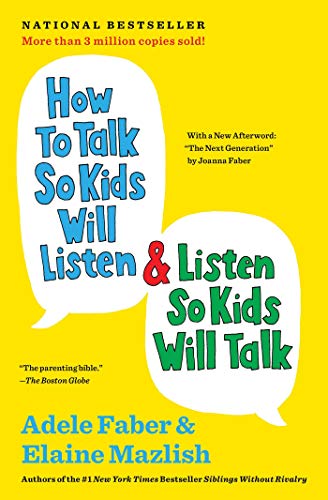
Peaceful Parent, Happy Kids: How to Stop Yelling and Start Connecting
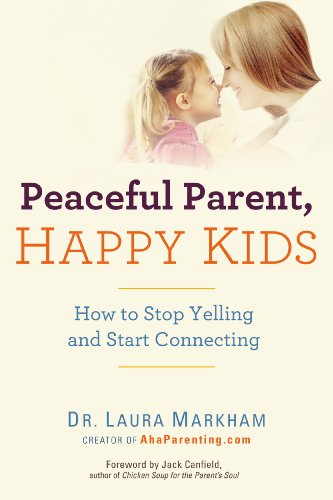
SAY WHAT YOU SEE For Parents and Teachers
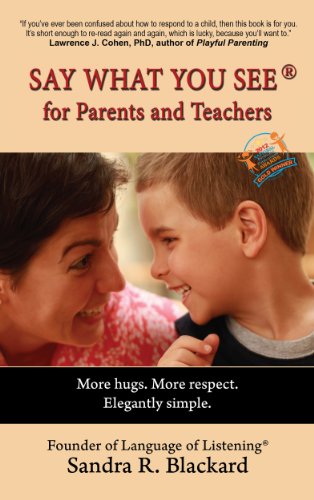
This was it!! If there is anything you would like me to add (something that is/was your personal strategy to find peace) let me know in the comments. I love your responses. They make me do more of what I do!
Let me know how do you manage situations when your kids don’t listen? Do you stay calm?
Related Articles:
11 Effective Tips To Reverse Defiance In Kids
How To Bridge Generation Gap As Parents
9 Incredible Habits For Raising Smart Kids
How To Get Your Toddler To Eat Healthy Meals
Don’t forget to pin it for later!
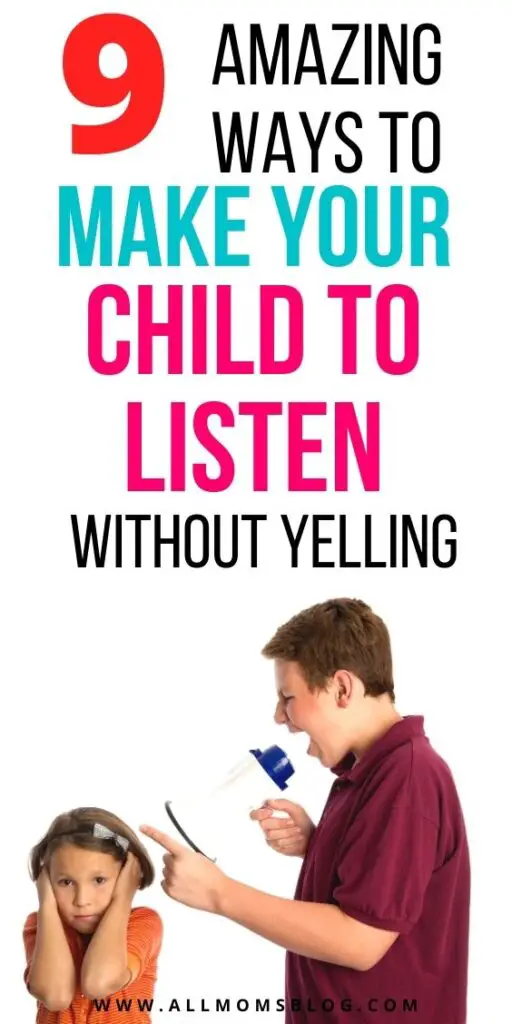
How to get your kids to listen without yelling
I am the Wife, Mommy, & Blogger behind All Moms Blog learning to run my own home and raise up kids while chasing my dreams. I work to support, inspire, and encourage moms in the journey of motherhood to make their lives easier without losing your sanity.


These are such amazing positive parenting tips! It’s important to remember that we are not perfect, and even as parents we slip up from time to time
That’s right! Hope more and more parents stop stressing themselves to become perfect parents. For kids don’t need perfect parents, they just need loving ones.
I am definitely guilty of yelling, especially when there are other things on my mind and our daughter decides to make a big thing about something she wants to do or wear that is just not possible or appropriate on the day. Like wearing sandles the day after it snows because they are the only pink shoes she has. I thoroughly admit that I am not very good at dealing with these acts of stubbornness when my mind is really focussing on something else. Most times I know when I am not in a good place to deal with such things and I need to learn to consciously take a step back and centre myself and my focus before finding a mutually satisfactory outcome for us both rather than exploding because I am really just distracted and can‘t deal with it.
Honestly, I have been there where you are and I can feel you. What I like to do to regain my focus is to spend some time alone. Whether it’s in a room, bathroom anywhere. Just 5 mins away from all the distractions take some time to re-center myself and when I come back I’m ready for anything to deal with. Give yourself some time and things will get better.